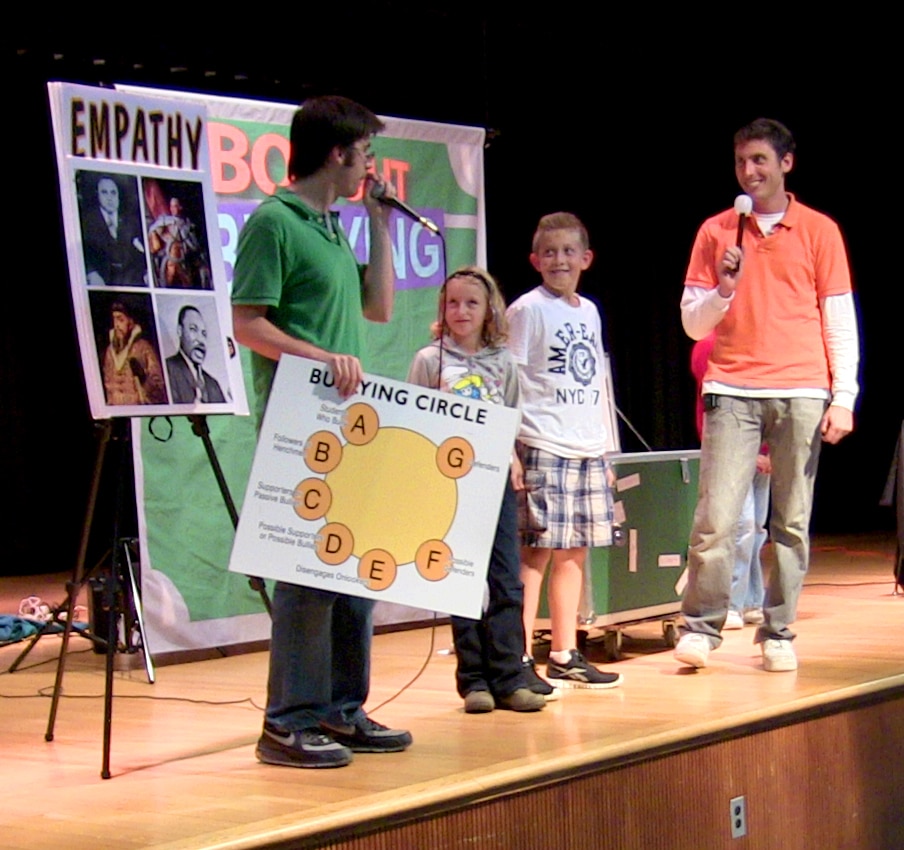Olweus Kickoff Event – Where We Come In
Box Out Bullying’s Programming Can
- Kick-off and/or re-energize your school-wide Olweus Bullying Prevention program with an interactive assembly
- Use specific Olweus terminology and pedagogy that explicitly teaches students about the 4 rules, the bullying circle, the definition of bullying, the roles people play in a bullying situation, and bystander empowerment tools.
- Provide comprehensive follow up lesson plans perfect for classroom meetings and designed to last all year!
- Beautiful posters, banners, and swag that will put the spotlight on your schools positive school culture
“All of the concepts that we are teaching our students were just beautifully tied in and reinforced though Box Out Bullying.”
What is Bullying?
There are three criteria that distinguish a situation of conflict, misunderstanding, or disagreement from a situation of bullying.
Bullying is an aggressing, proactive behavior that happens:
- On Purpose
- Repeated over time
- In an imbalance of Power
In order for a situation to be considered bullying it must exhibit all three of these criteria.
For older students, we use the explanation:
“Bullying is when a stronger person hurts, or frightens a less strong person, again and again. And that person who is being bullied cannot easily defend themselves.”
For students in Pre-K you could use this as your definition:
“Bullying is when someone is mean to someone else many, many times.”
Which roles do People Play In A Bullying Situation?
A main focus in the Box Out Bullying program is bystander empowerment. We aim to turn students who would see bullying and do nothing into students who would see bullying and try to take action to help stop it.
For students in grades 3 & up, we use the specific terminology of Dr. Dan Olweus to address the roles of the:
- Bystander
- Disengaged Onlooker
- Possible Defender
- Defender
For students in lower level elementary we will demonstrate the difference between Rough & Tumble Play vs a bullying situation, Telling vs Tattling (snitching) and much more.


